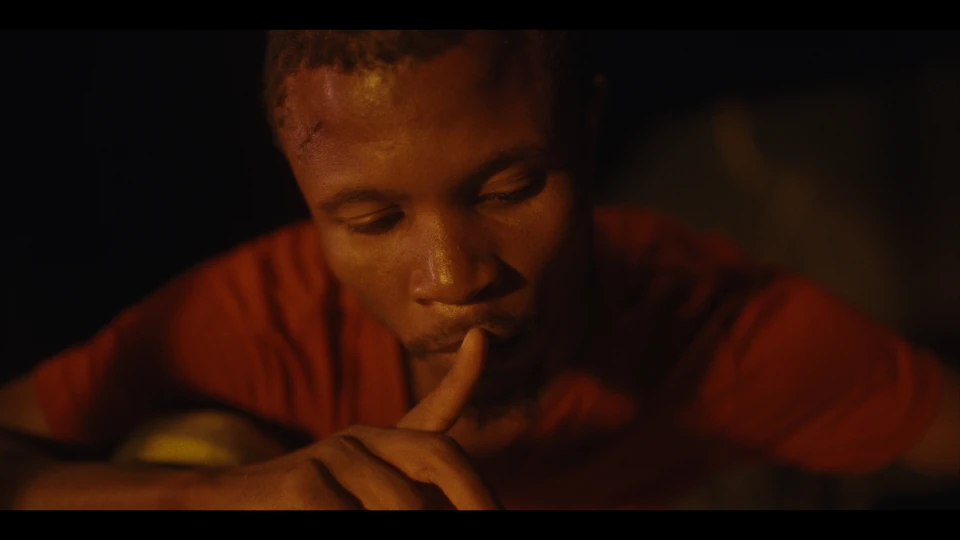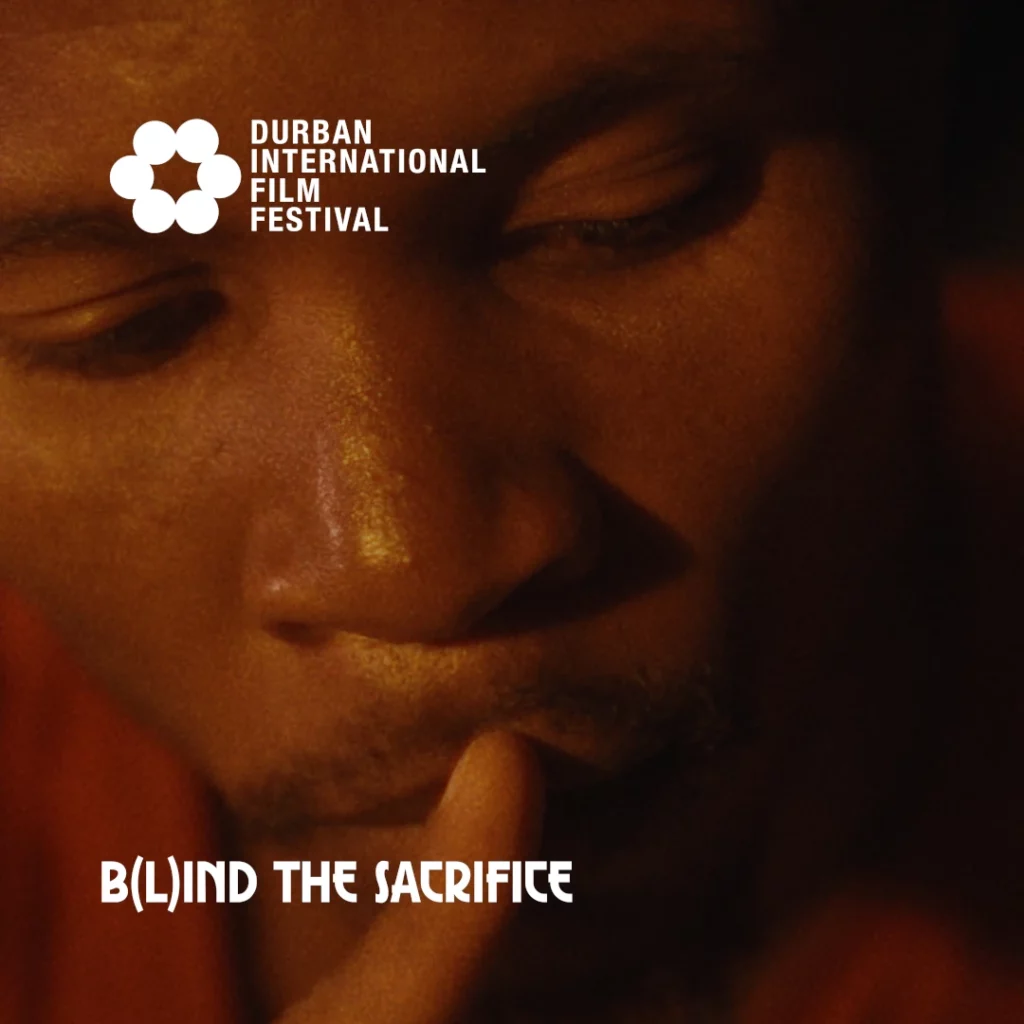By Tshi Malatji

B(l)ind the Sacrifice is Nkhane’s symbolic short film about queer identity in South Africa, how it intersects with religion, culture and family in Black communities. It retells The Sacrifice of Isaac from Genesis, with a twist at the end.
Identity is depicted as a suppression, a suggestion, a secret. The characters are called The Son, The Father, The Mother and servants, highlighting how our roles define our identities. They also link to the religious trinity, revealing the film’s many encounters with spirituality. The Father has expectations for The Son, and is willing to go so far as to kill The Son. The Mother does not intervene. The relations between the three are clearly established and explored through a series of tight and tense scenes.
Fire is a major symbolic element in the film, as it is centred in most of the night shots, with the flames flickering. Fire is almost always in the middle of the screen. The people sit around the fire to hear mythological narratives and preachings. The tents are similarly positioned around the fireplace facing inward toward it. When the fire is not made, The Father goes so far as to request it. There is a lust, after all, for the burning away of undesirable identity.
During the day, the Mother peels potatoes. She is usually depicted sitting down, silent or reserved. It is only vaguely clear that they accept The Son but they certainly do not outright reject him. It would benefit the film to explore the Mother more, just as our societies suppress the perspective of women. But it is clear that she is aware. Her eyes remain open during the twist of the film. Her eyes are the visual focus of her character given her silence. The Mother notices.
The Son also disregards customs, escaping when the Father mythologises and refuses to go to the other men when summoned. The Son reacts to the disapproval of the Father through disobedience and a gradually growing grudge. This symbolises how sexuality becomes an act of disobedience in a non-accepting society, creating an environment of hostility.
The Father allegedly hears the voice of God, preaching about being chosen and convulsing uncontrollably. God is used as a justification for their harmful actions against the Son in the same way that queer identities are commonly rejected on religious bases.
The Father sees God. The Mother sees the ill-treatment of the Father. But, perhaps, they are blind in a certain way. The title is open to interpretation. Certainly, however, the Son has a sense of clarity about their identity and suffers only the blindness of their own rage.
Catch the film at DIFF: https://ccadiff.ukzn.ac.za/diff46/blind-the-sacrifice/
Screening Schedule:
18 Jul 17:00 Suncoast 6
21 Jul 12:00 Wushwini
22 Jul 12:00 KCAP
23 Jul 12:00 CAP Studios
24 Jul 09:00 Denis Hurley
24 Jul 11:00 Denis Hurley
25 Jul 12:00 Luthuli Museum
24 Jul 19:00 Watercrest 1
1 Aug 17:30 The Labia
1 Aug 17:30 The Bioscope
This review emanates from the Talent Press programme, an initiative of Talents Durban in collaboration with the Durban FilmMart Institute and FIPRESCI. The opinions expressed in this article are those of the author (Tshi Malatji) and cannot be considered as constituting an official position of the organisers.

